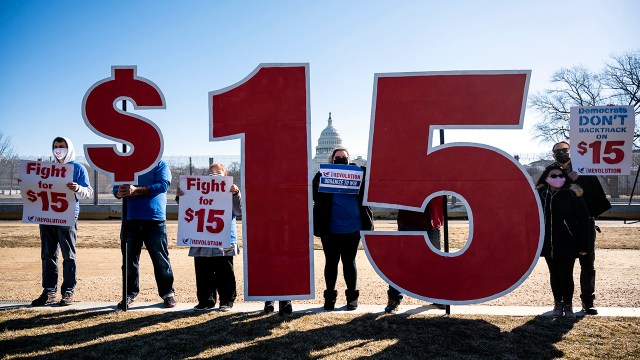

About six-in-ten U.S. adults (62%) say they favor raising the federal minimum wage to $15 an hour, including 40% who strongly back the idea. About four-in-ten (38%) say they oppose the proposal, according to a Pew Research Center survey conducted April 5-11.
The Biden administration and many congressional Democrats favor increasing the federal minimum wage to $15 an hour from the current rate of $7.25 an hour, but the proposal’s fate in the Senate is uncertain. Some senators, including several Democrats, support a more modest increase in the wage.
How we did thisPew Research Center conducted this study understand Americans’ views on raising the standard federal minimum wage. For this analysis, we surveyed 5,109 U.S. adults in April 2021. Everyone who took part in this survey is a member of the Center’s American Trends Panel (ATP), an online survey panel that is recruited through national, random sampling of residential addresses. This way nearly all U.S. adults have a chance of selection. The survey is weighted to be representative of the U.S. adult population by gender, race, ethnicity, partisan affiliation, education and other categories. Read more about the ATP’s methodology.
Here are the questions used for the report, along with responses, and its methodology.
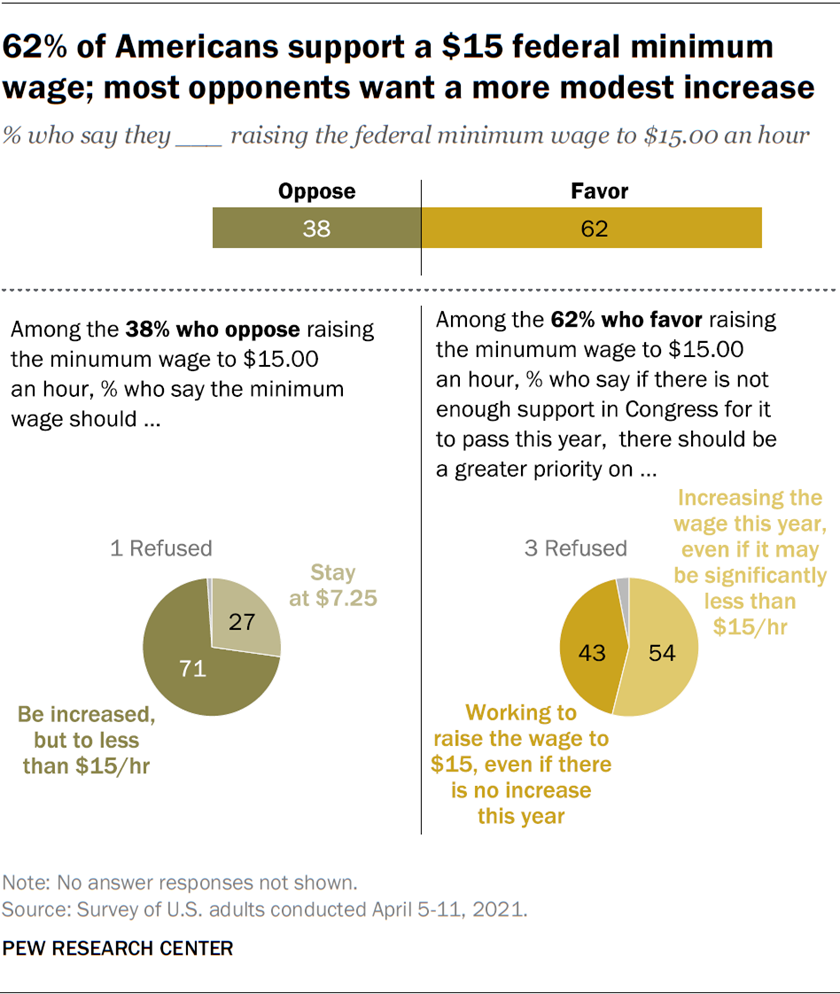
Among the public, those who back a $15 minimum wage are fairly divided over how to approach the issue if there is insufficient support in Congress for an increase to that amount this year. A narrow majority of these Americans (54%) say leaders should focus on passing an increase to the wage “even if it may be significantly less than $15 an hour,” while 43% say the priority should be to work to raise the hourly minimum wage to $15 “even if no increase makes it into law this year.”
Among those who oppose raising the minimum wage to $15 an hour, a substantial majority (71%) say the federal minimum wage should be increased, but that the standard should be less than $15 an hour; those who hold this view account for 27% of the overall public. Only one-in-ten Americans in all say that federal minimum wage should remain at the current level of $7.25 an hour.
Support for raising the minimum wage to $15 an hour is extensive across most demographic groups, according to the survey, which was conducted among 5,109 U.S. adults.
Black adults in particular stand out for their support: 89% favor raising the minimum wage to $15 an hour, including 73% who support the idea strongly.
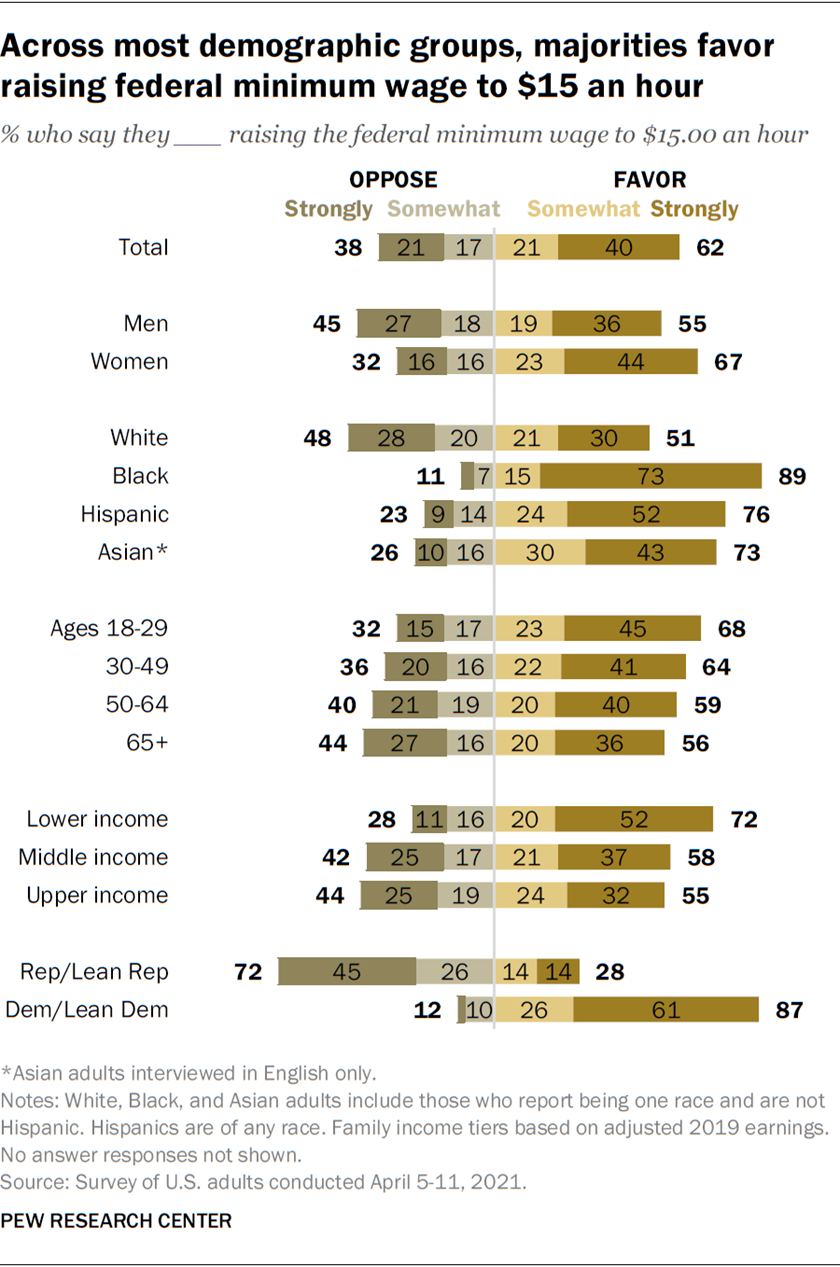
About three-quarters of Hispanic (76%) and Asian Americans (73%) also favor raising the minimum wage to $15 an hour, with 52% of Hispanics and 43% of Asians saying they strongly support the idea.
White adults, by contrast, are divided: 51% favor raising the minimum wage to $15 an hour – including just 30% who strongly favor it – while 48% oppose it.
About seven-in-ten adults who live in lower-income households (72%) say they favor raising the federal minimum wage to $15 an hour, including about half (52%) who strongly favor such an increase. Smaller majorities of those in middle- (58%) and upper-income households (55%) say they favor a $15 minimum wage.
There are sharp partisan differences in opinions. While 87% of Democrats and Democratic-leaning independents say they favor increasing the wage to $15 an hour (including 61% who strongly favor it), 72% of Republicans and GOP leaners oppose the idea (including 45% who strongly oppose it).
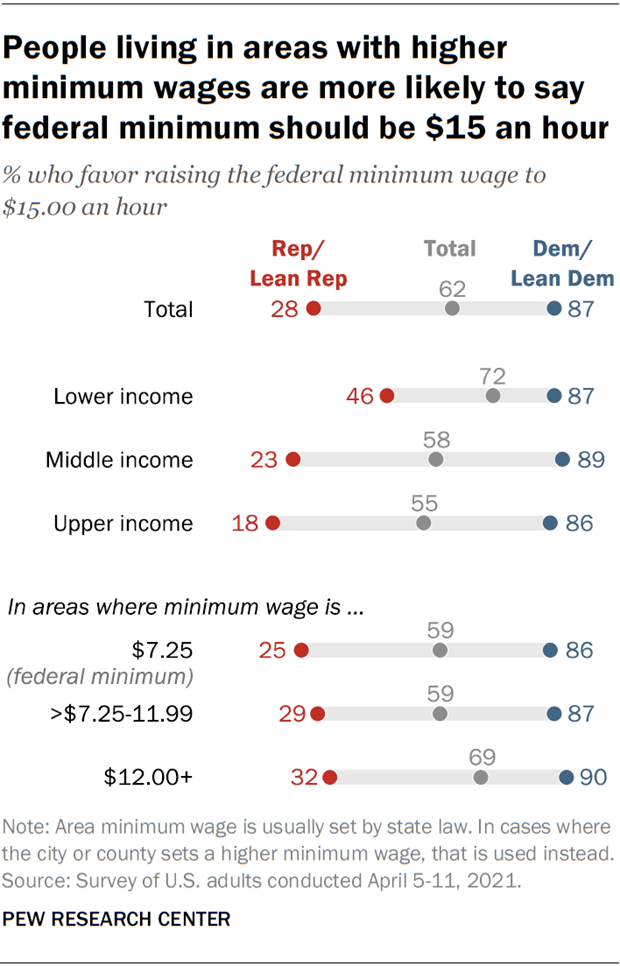
People living in areas where the state-level minimum wage is currently $12 or higher are more likely than others to say they favor a federal increase to $15 an hour. About seven-in-ten adults in these places (69%) favor raising the federal minimum wage to $15 an hour, compared with 59% of those living in places with a minimum wage of less than $12 an hour.
While Democrats are largely united in their support for increasing the federal minimum wage to $15 an hour, Republicans’ views differ by household income.
Lower-income Republicans (46%) are much more likely than middle- (23%) and upper-income Republicans (18%) to say they favor raising the federal minimum wage to $15 an hour. Still, a majority of lower-income Republicans (54%) say they oppose such an increase.
Similarly, Republicans who live in areas where the state minimum wage is $12 or higher are slightly more likely than those living in places where the $7.25 federal minimum wage applies to say they favor raising the federal minimum to $15 an hour (32% vs. 25%).
More than half of Americans who favor a $15 federal minimum wage (54%) say that if there is not enough congressional support for such an increase this year, Congress should prioritize increasing the wage even if the new wage is significantly less than $15.
These views differ by race and ethnicity, as well as by income. A majority of Black adults who favor a $15 standard (55%) say that if there is not sufficient support in Congress for that to pass, congressional leaders should continue to work for a $15 minimum wage even if no minimum wage increase becomes law this year. Half of Hispanic adults who back the $15 wage also express this view.
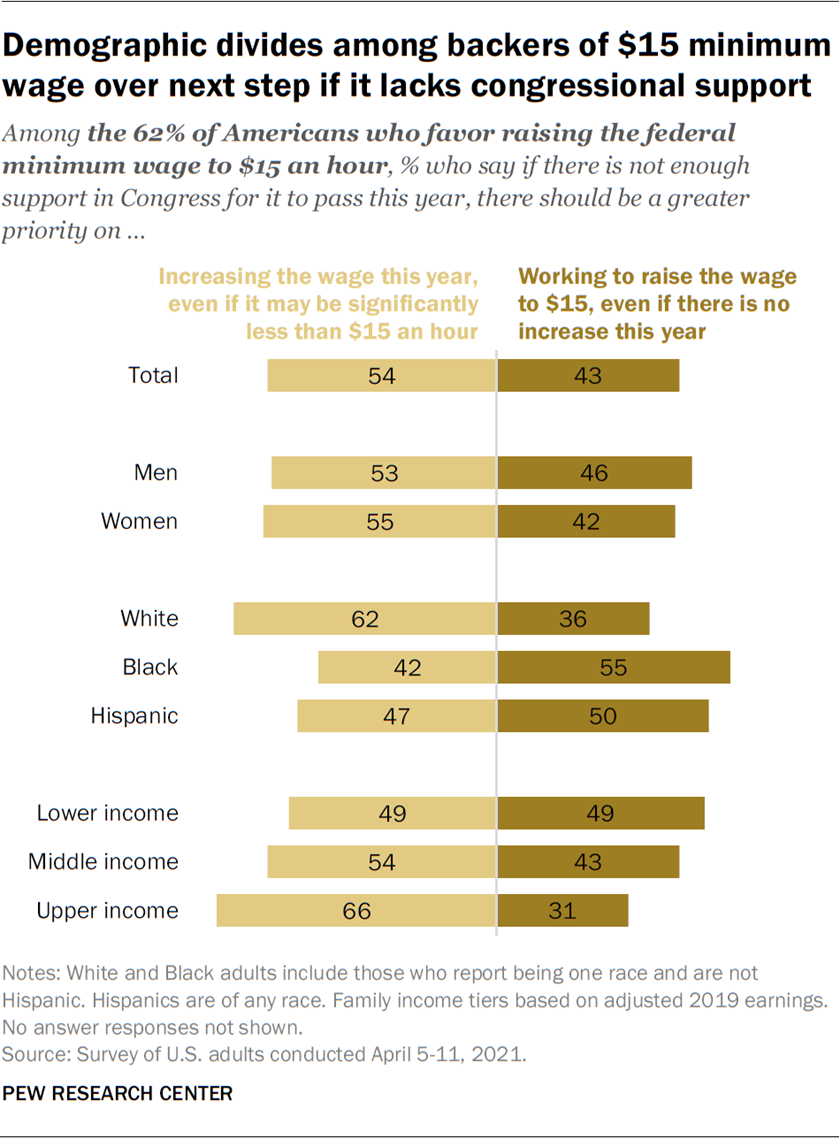
By contrast, 36% of White adults who favor a $15 minimum wage say Congress should keep pressing for that amount. A majority of White supporters of a $15 federal minimum wage, by contrast, say Congress should work for an increase in the minimum wage even if it is less than $15 an hour.
Lower-income adults who favor a $15 minimum wage are divided on the better approach if there is inadequate support in Congress for the proposal this year: 49% say congressional leaders should prioritize any raise to the minimum that can happen this year, while an identical 49% share say leaders should continue working until they pass legislation raising the wage to $15 an hour.
Among higher-income adults who support a $15 minimum wage, majorities say the priority for Congress should be to work to increase the minimum wage, even if the new wage is significantly less than $15 an hour.